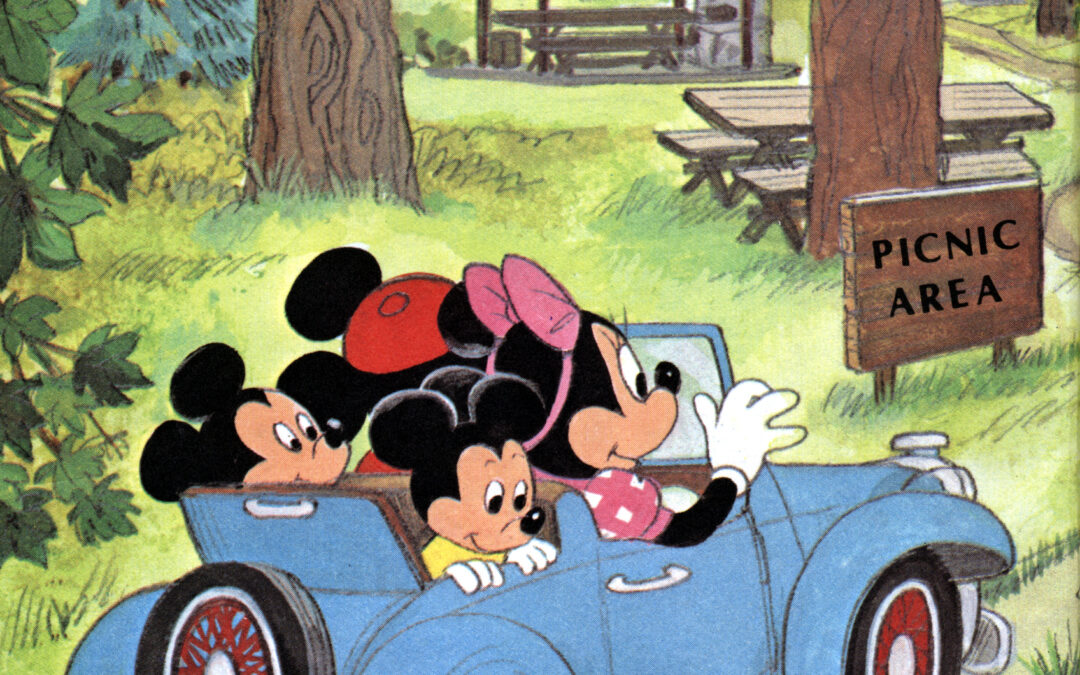 Among the best picnics, adult or otherwise, A Picnic in the Woods sets an example of optimistic picnic fun. It begins with the usual refrain: “It’s a beautiful day for a picnic!” as Mickey Mouse, Minnie Mouse, and Mickey’s nephews Ferdy and...
Among the best picnics, adult or otherwise, A Picnic in the Woods sets an example of optimistic picnic fun. It begins with the usual refrain: “It’s a beautiful day for a picnic!” as Mickey Mouse, Minnie Mouse, and Mickey’s nephews Ferdy and...
 If the Simpsons ever do any right, it’s a miracle, and the picnic at Mr. Bruns’s mansion is a typical disaster. Thinking that the boss likes dessert, Homer, Marge, Bart, and Lisa bring gelatin dessert to the picnic. (So does everyone else.) It’s an...
If the Simpsons ever do any right, it’s a miracle, and the picnic at Mr. Bruns’s mansion is a typical disaster. Thinking that the boss likes dessert, Homer, Marge, Bart, and Lisa bring gelatin dessert to the picnic. (So does everyone else.) It’s an...
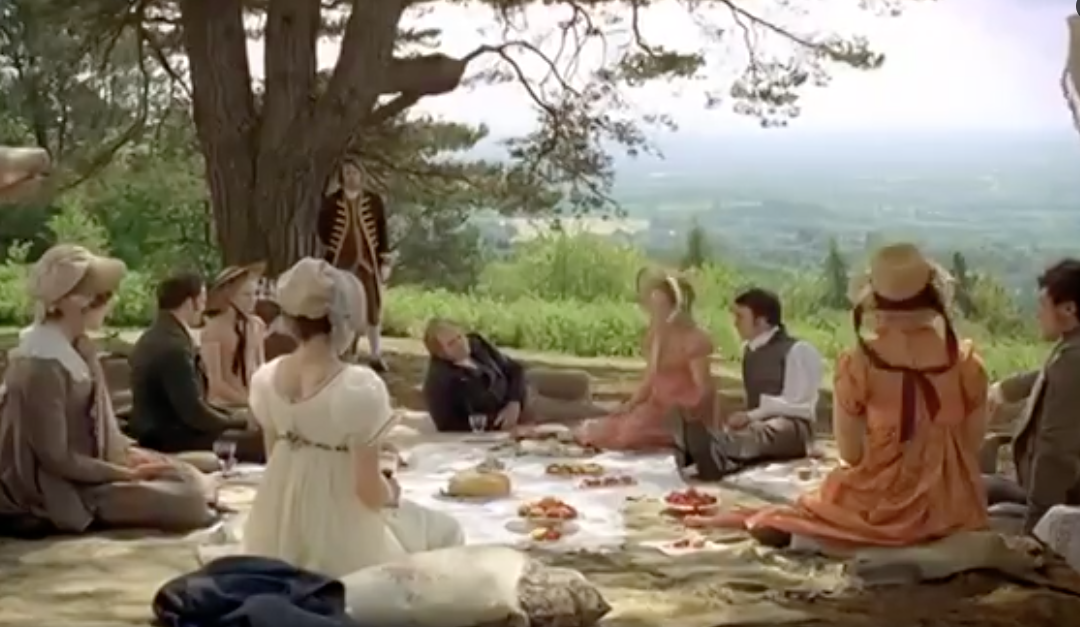 O’Hanlon supposes Box Hill picnic must be a combination of informality and gentility. Servants carry amenities for a regiment so that Emma, Knightley, et al. sits on a sparkling white cloth (with cushions, of course) drinking wine in crystal goblets, served by...
O’Hanlon supposes Box Hill picnic must be a combination of informality and gentility. Servants carry amenities for a regiment so that Emma, Knightley, et al. sits on a sparkling white cloth (with cushions, of course) drinking wine in crystal goblets, served by...
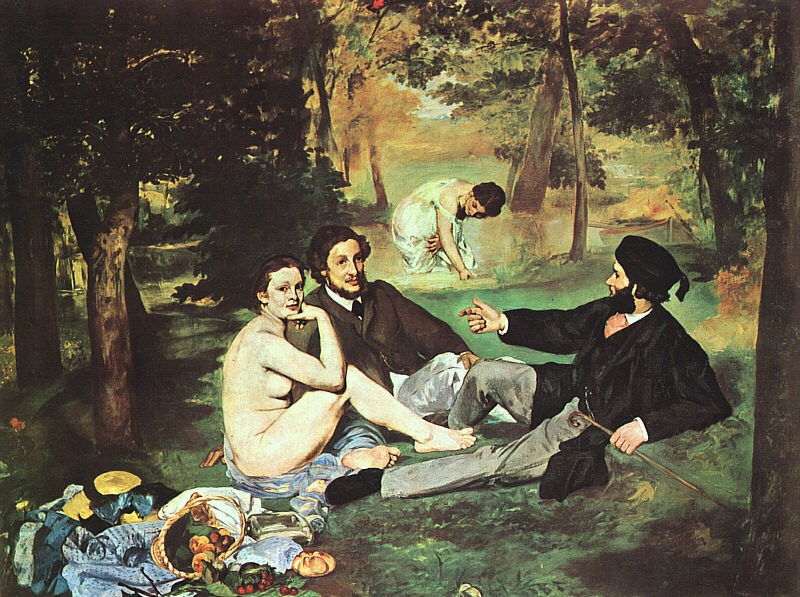 Manet’s Le déjeuner sur l’herbe is a French euphemism for picnic in English. Pique-nique was not used for an alfresco luncheon but for dinner indoors, repas de pique-nique. When it was exhibited in 1863 at the Salon des Refusés, the painting was titled Le...
Manet’s Le déjeuner sur l’herbe is a French euphemism for picnic in English. Pique-nique was not used for an alfresco luncheon but for dinner indoors, repas de pique-nique. When it was exhibited in 1863 at the Salon des Refusés, the painting was titled Le...
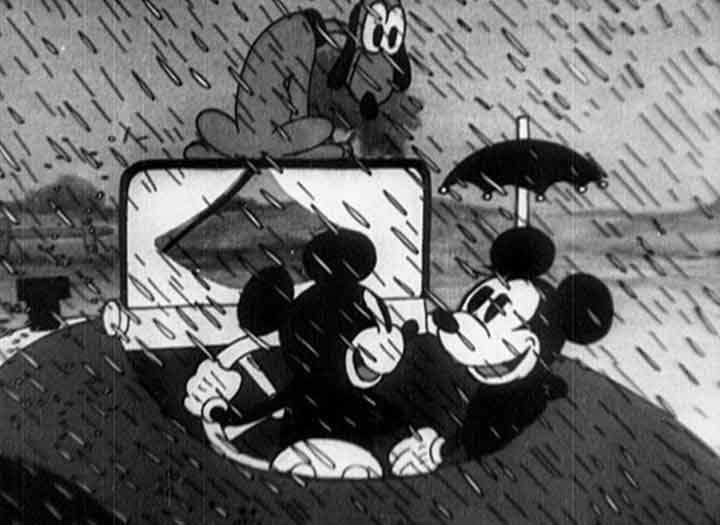 Disney’s seven-minute cartoon The Picnic packs as many picnic conventions as possible: a motorcar drive to the country, a stream, shady tree, a wicker basket, a gingham cloth jammed with a gourmand feast of sandwiches, Swiss cheese, mustard, pickles, olives, honey,...
Disney’s seven-minute cartoon The Picnic packs as many picnic conventions as possible: a motorcar drive to the country, a stream, shady tree, a wicker basket, a gingham cloth jammed with a gourmand feast of sandwiches, Swiss cheese, mustard, pickles, olives, honey,...
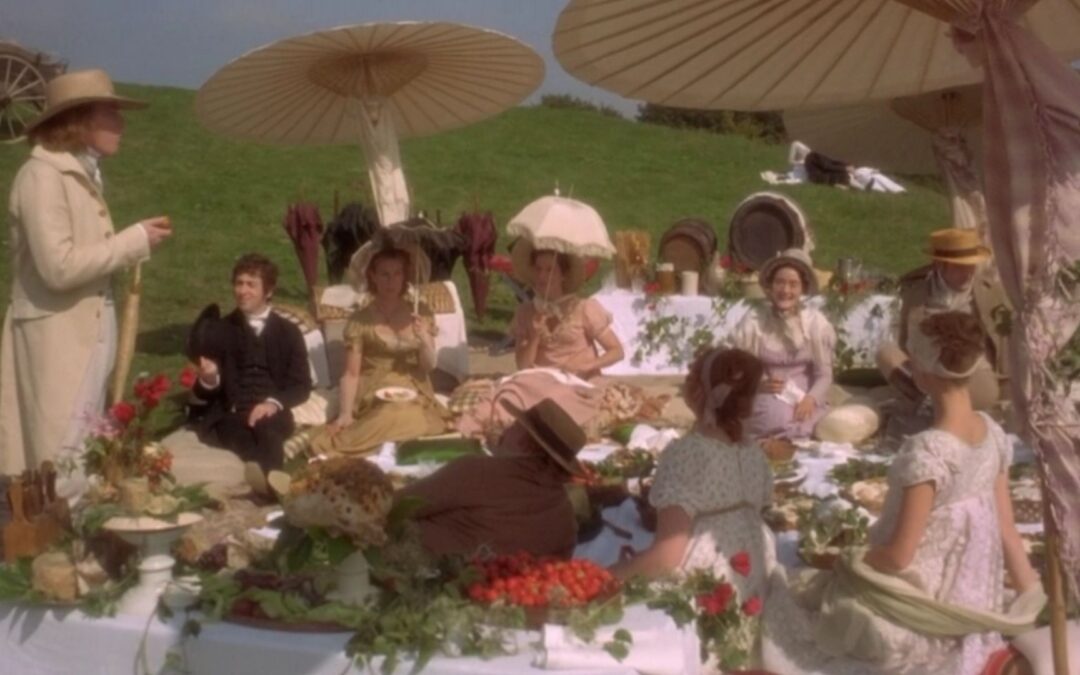 By the last count, seven directors have filmed Austen’s Emma. None of them are definitive or even alike. A list is provided as a separate entry. McGrath’s Emma is lively, and his picnic episode at Donwell Abbey and Box Hill is reasonably close to...
By the last count, seven directors have filmed Austen’s Emma. None of them are definitive or even alike. A list is provided as a separate entry. McGrath’s Emma is lively, and his picnic episode at Donwell Abbey and Box Hill is reasonably close to...
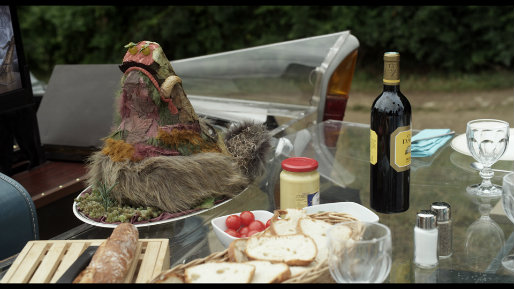 The picnic in Gondry’s Mood Indigo [L’Écume des jours] is his invention, a goofy addition to Boris Vian’s surrealistic novel L’Écume des jours. * It’s the love story of Colin, who is manic and unpredictable, and Chloe, who is stable until she meets...
The picnic in Gondry’s Mood Indigo [L’Écume des jours] is his invention, a goofy addition to Boris Vian’s surrealistic novel L’Écume des jours. * It’s the love story of Colin, who is manic and unpredictable, and Chloe, who is stable until she meets...
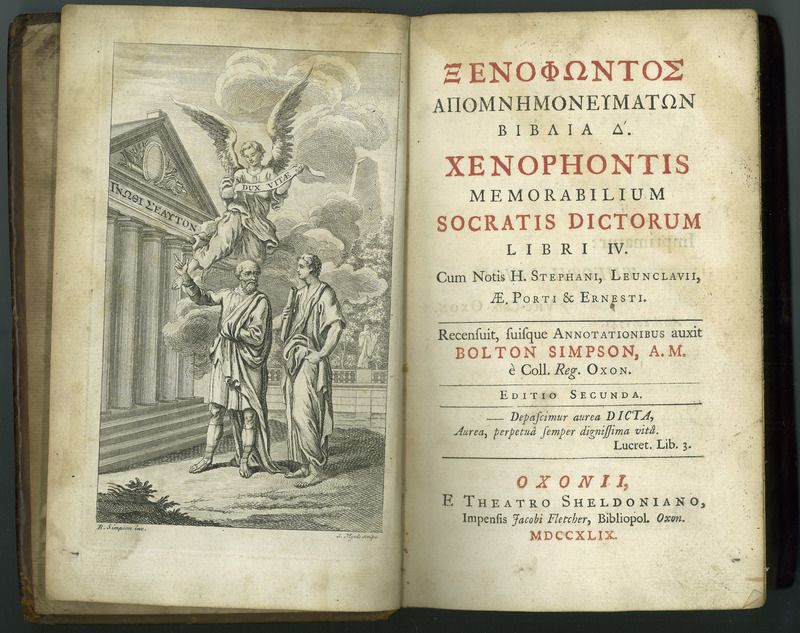 The custom of sharing food or eranos was common among the ancient Greeks. In The Memorabilia, Xenophon discusses a dinner party at which Socrates suggests that the food and drink be collected in common stock, so there is no social discord about who brought what to...
The custom of sharing food or eranos was common among the ancient Greeks. In The Memorabilia, Xenophon discusses a dinner party at which Socrates suggests that the food and drink be collected in common stock, so there is no social discord about who brought what to...
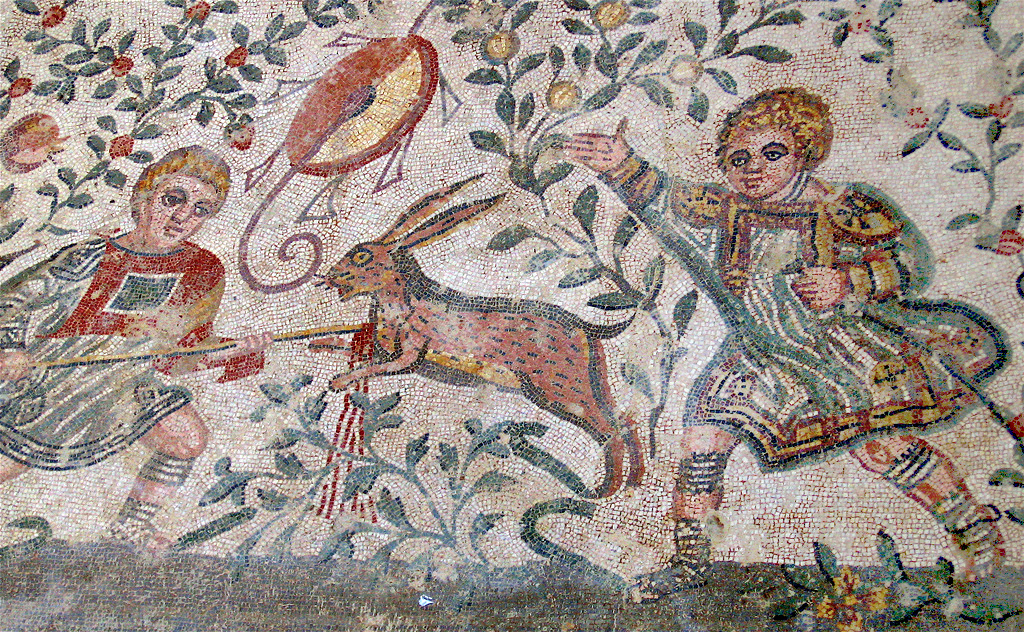 Hunting feasts have a long history. Among the Romans, one such by Philostratus Elder uses the rhetorical device of Ekphrasis, a verbal description of a visual representation, to illustrate a painting he observed in Naples. Ironically, none survive, if they existed at...
Hunting feasts have a long history. Among the Romans, one such by Philostratus Elder uses the rhetorical device of Ekphrasis, a verbal description of a visual representation, to illustrate a painting he observed in Naples. Ironically, none survive, if they existed at...
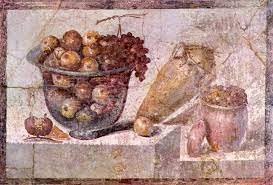 Seneca says that eating ripe figs at a picnic brings “me a New Year feast every day, and I make the New Year happy and prosperous by good thoughts and greatness of soul.” Figs—only figs—that he claims is a substitute for bread. It is among the oddest main dishes for a...
Seneca says that eating ripe figs at a picnic brings “me a New Year feast every day, and I make the New Year happy and prosperous by good thoughts and greatness of soul.” Figs—only figs—that he claims is a substitute for bread. It is among the oddest main dishes for a...











